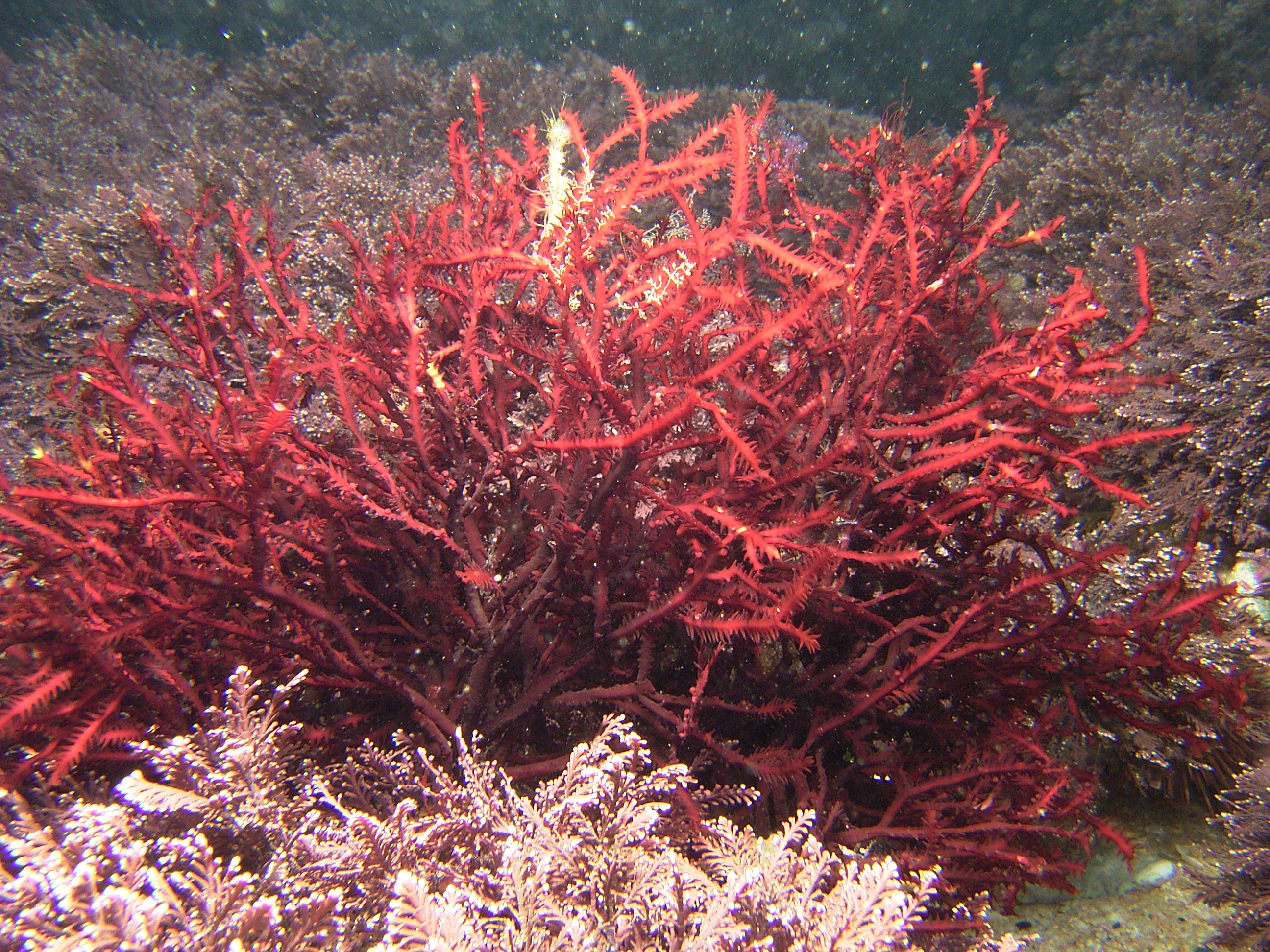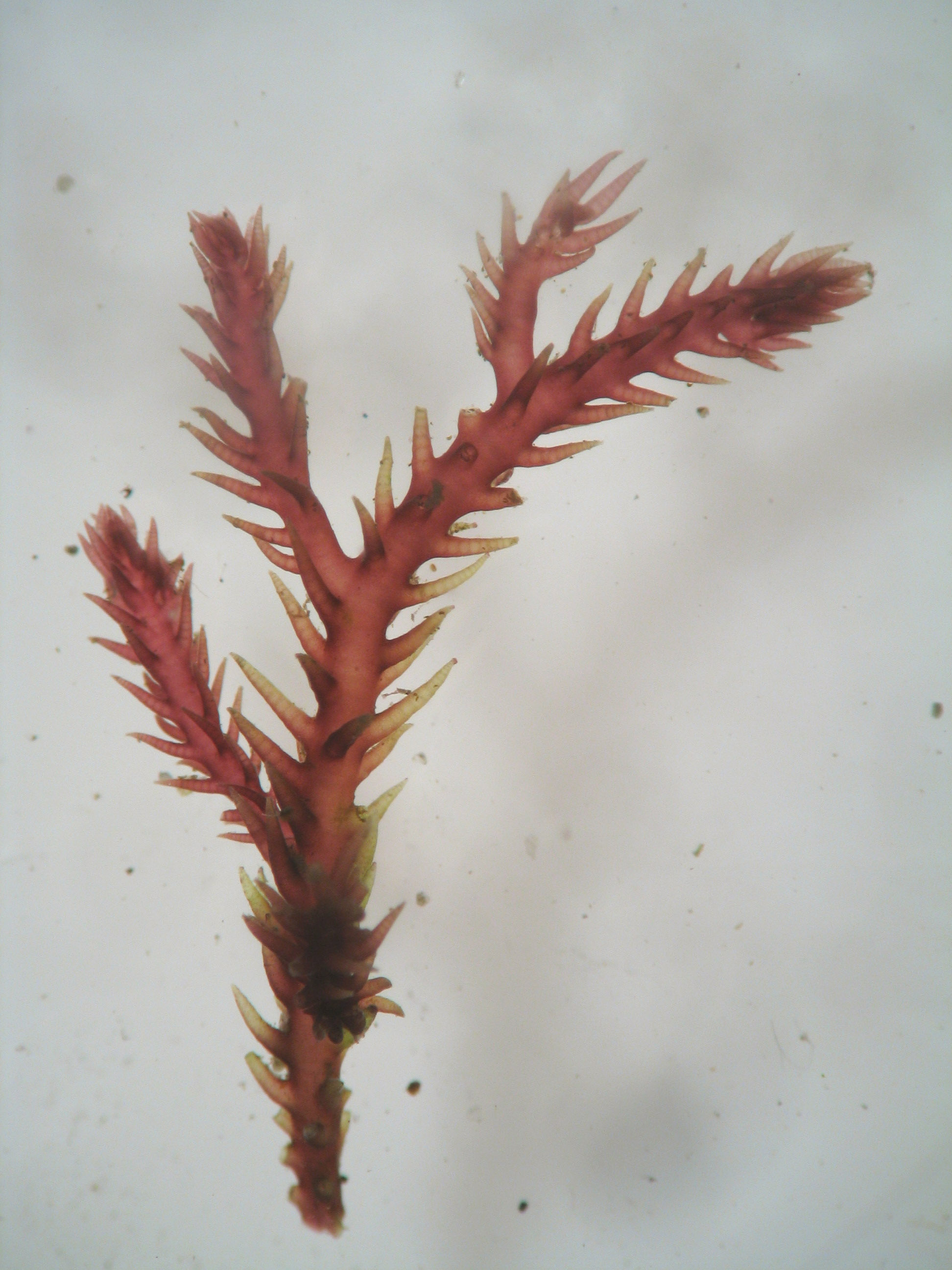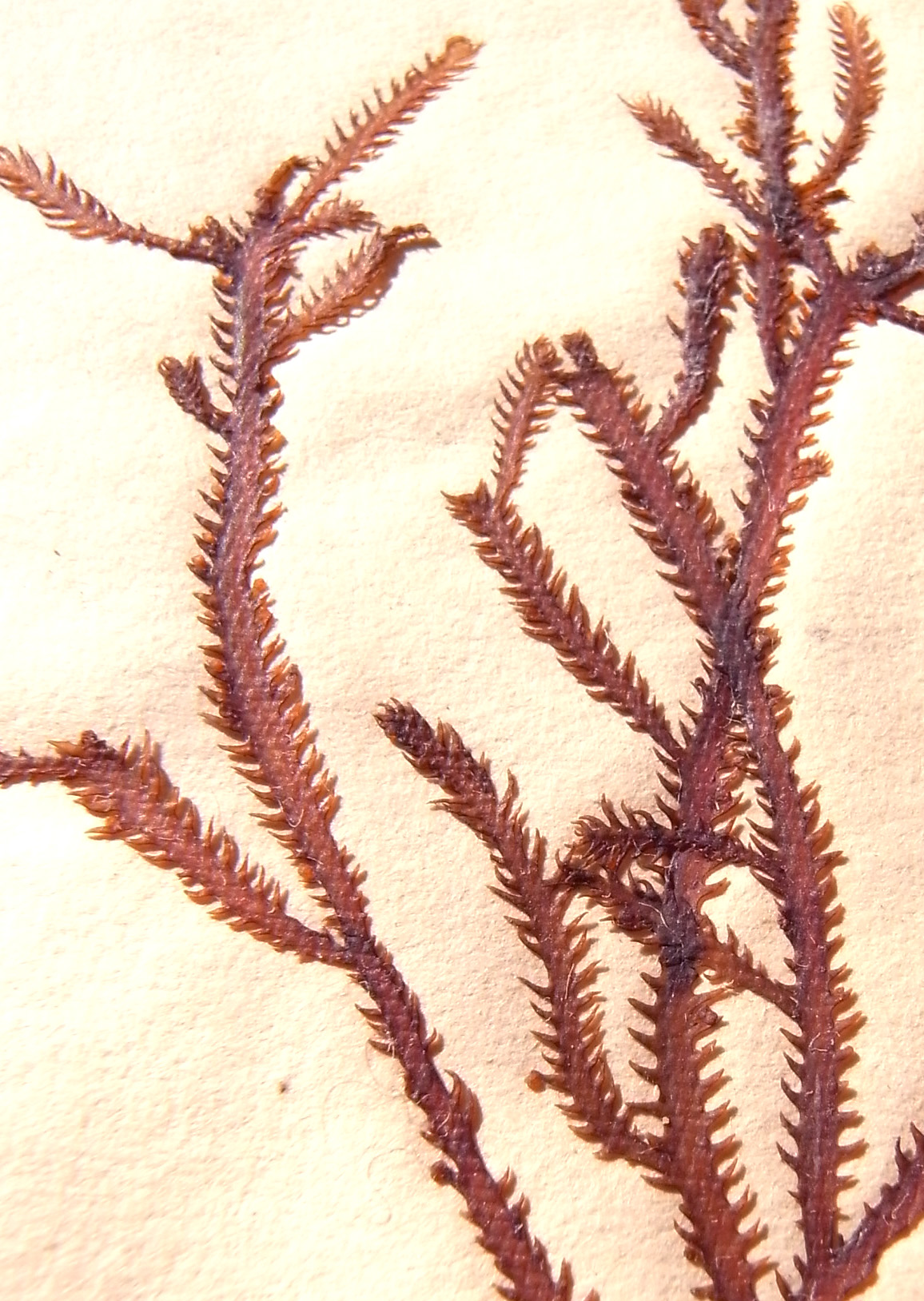Seaweeds of the South African South Coast


Order Gigartinales
Family Phacelocarpaceae
Phacelocarpus tortuosus Endlicher & Diesing 1845: 290.
Thalli dark red, erect, tough, densely branched, up to 30 cm tall; attached by short stipe to discoid holdfast. Axes either flattened, with teeth along margins, or terete, with teeth in spirals around axes; sometimes both types on one plant. Thallus uniaxial; axial cell distinct and surrounded by much smaller medullary cells; cortical cells large, becoming progressively smaller towards periphery. Reproductive structures borne on lateral branchlets; globose tetrasporangial nemathecia borne in or near the sinus between adjacent teeth, zonately divided tetrasporangia arranged in channels below surface of nemathecium; mature cystocarps stalked, globose, bilobed, opening via a slit.
Collections, ecology and regional distribution
Found from De Hoop to the Durban area of KZN (24-51), in the lower eulittoral and shallow sublittoral zones.
World distribution: South African endemic.
Type locality: Port Natal (Durban) South Africa (Silva et al., 1996).
Note: For details of morphology and reproductive structure see Searles (1968).

Phacelocarpus tortuosus, Kenton-on-Sea.

Phacelocarpus tortuosus, detail of spiny branchlets. Fresh specimen, Port St Johns.

Phacelocarpus tortuosus, detail of herbarium specimen (BOL) from Port Alfred.
References Phacelocarpus tortuosus
Endlicher SL & C M Diesing 1845. Algarum natalensium diagnoses. Botanische Zeitung 3: 288-290.
Searles R.B. 1968. Morphological studies of red algae of the order Gigartinales. University of California Publications in Botany 43: 1-100.
Silva, P.C., Basson, P.W. & Moe, R.L. 1996. Catalogue of the benthic marine algae of the Indian Ocean. University of California Publications in Botany 79: 1-1259.
Cite this record as:
Anderson RJ, Stegenga H, Bolton JJ. 2016. Seaweeds of the South African South Coast.
World Wide Web electronic publication, University of Cape Town, http://southafrseaweeds.uct.ac.za; Accessed on 16 February 2026.